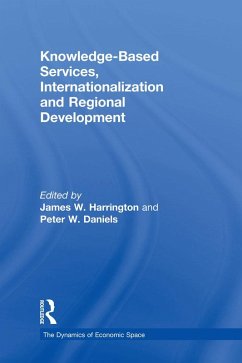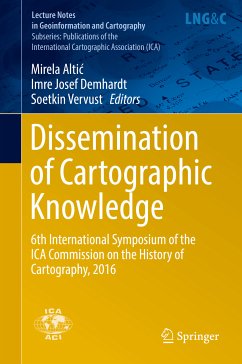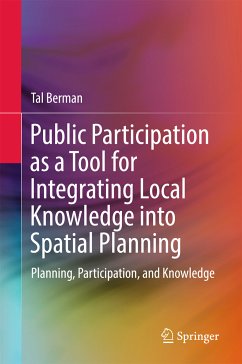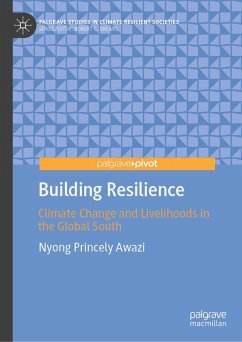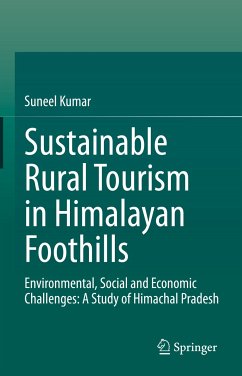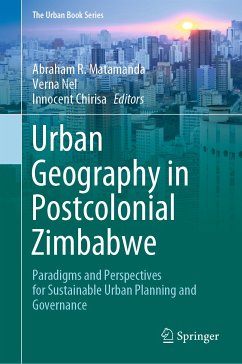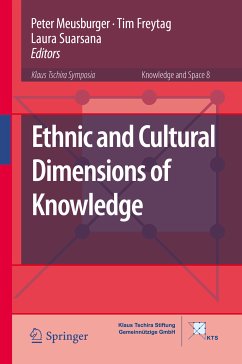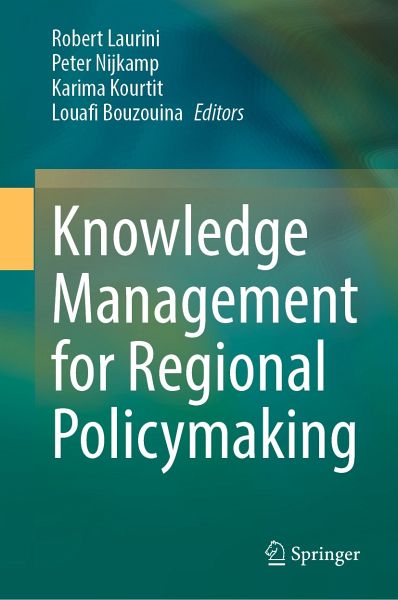
Knowledge Management for Regional Policymaking (eBook, PDF)
Versandkostenfrei!
Sofort per Download lieferbar
72,95 €
inkl. MwSt.
Weitere Ausgaben:

PAYBACK Punkte
36 °P sammeln!
The present publication focusses the attention on new avenues in regional information and knowledge management, while we will zoom in particularly on the potential promises and hurdles of digital technology. This digital challenge has already generated a wealth of implications in the area of smart or intelligent cities, but as yet far less has been achieved in the field of regional planning and regional science. There is clearly a need for a more systematic and wide-ranging assessment and presentation of emerging approaches and concepts in this field, for instance, in regard to principles (e.g...
The present publication focusses the attention on new avenues in regional information and knowledge management, while we will zoom in particularly on the potential promises and hurdles of digital technology. This digital challenge has already generated a wealth of implications in the area of smart or intelligent cities, but as yet far less has been achieved in the field of regional planning and regional science. There is clearly a need for a more systematic and wide-ranging assessment and presentation of emerging approaches and concepts in this field, for instance, in regard to principles (e.g. geographic rule modeling), methodologies (e.g. blockchain systems), data analytics (e.g. machine learning) and data governance (e.g. data sovereignty) of regional information and knowledge. Especially in our 'big data' era, a systematic, comprehensible and reliable acquisition, storage, sharing and handling of data (e.g. on the basis of systematic decomposition and filtering principles) is more needed than ever before.
The present study seeks to present a selection of state-of-the-art contributions on advanced - often digitally-oriented - regional information and knowledge management foundations, principles and practices written by several experts in the field of spatial informatics. These contributions were collected with a view to the design of a comprehensive knowledge and research agenda, which was discussed during a brainstorm workshop in Lyon, France (October 2021).
This book covers various fields of interest, such as GeoAI, knowledge modelling, IoT and scalability, space syntax, rule extraction, data governance and data self-sovereignty. It is concluded with a knowledge and research agenda outlining future endeavors in the field of the spatial information sciences (or spatial informatics).
The present study seeks to present a selection of state-of-the-art contributions on advanced - often digitally-oriented - regional information and knowledge management foundations, principles and practices written by several experts in the field of spatial informatics. These contributions were collected with a view to the design of a comprehensive knowledge and research agenda, which was discussed during a brainstorm workshop in Lyon, France (October 2021).
This book covers various fields of interest, such as GeoAI, knowledge modelling, IoT and scalability, space syntax, rule extraction, data governance and data self-sovereignty. It is concluded with a knowledge and research agenda outlining future endeavors in the field of the spatial information sciences (or spatial informatics).
Dieser Download kann aus rechtlichen Gründen nur mit Rechnungsadresse in A, B, BG, CY, CZ, D, DK, EW, E, FIN, F, GR, HR, H, IRL, I, LT, L, LR, M, NL, PL, P, R, S, SLO, SK ausgeliefert werden.




